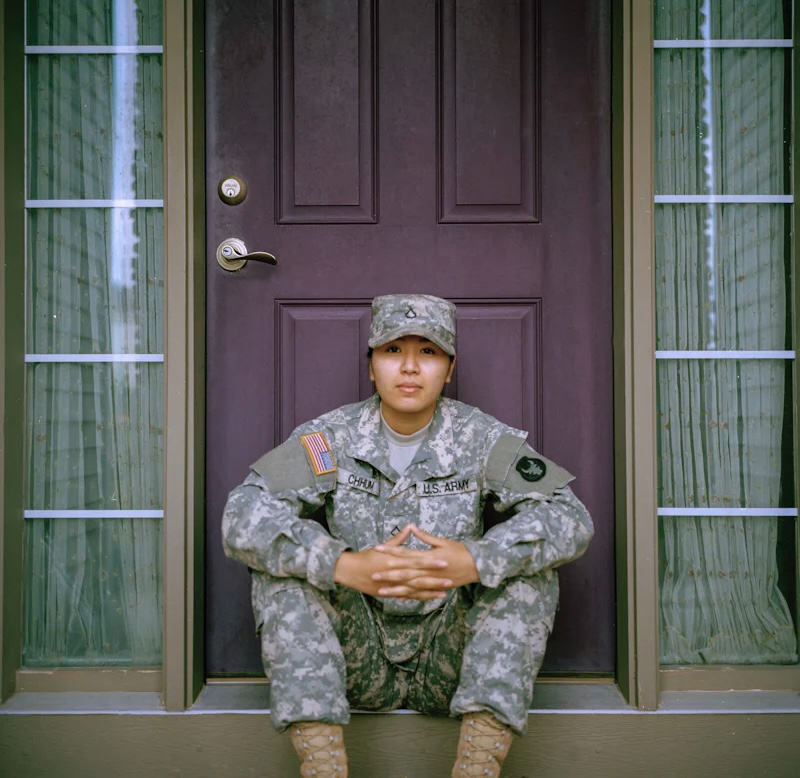
Estate planning is essential for military personnel.
Members of the armed services volunteer to defend the Constitution, serve, and protect their fellow American citizens and their freedoms.
Even if military men and women avoid death and retire without injury, they have still made sacrifices for their country.
Military personnel consistently put others before themselves.
According to a recent Trust & Will article titled "Estate Planning for Veterans & Active Military," members of the armed services must prioritize estate planning for themselves and their loved ones.

Military personnel should protect themselves and their loved ones through estate planning.
Military members and their families live a constant existence of uncertainty and unpredictability.
So much is out of their control.
They must be ready to go if called up, whether for overseas deployment or TDY.
Estate planning is essential for individuals and families to prepare for uncertainty as best they can.
A comprehensive estate plan helps provide for and protect loved ones if one dies or becomes incapacitated.
Due to the nature of military work, the likelihood of these outcomes is higher than the general population.
A last will and testament is foundational in estate planning.
What does a last will accomplish?
Protects Your Family:
Those who have minor children are responsible for their care.
If they are left orphaned, they may end up in the foster care system without a guardian designation in a last will.
Distribute Assets Seamlessly:
A last will is filed with the probate court to guide asset distribution after settling debts, taxes, and expenses.
This document can direct the distribution of your estate to your loved ones in the way you want them to inherit it.
Other important documents include medical directives and financial powers of attorney.
What do these directives and powers of attorney do for military personnel?
Plan for the Unexpected:
Having advance directives allows you to indicate the end-of-life and medical care you would like to receive if you cannot communicate these wishes.
Delegate Your Decisions:
Managing your financial and legal decisions is challenging or impossible during deployment or incapacity.
With powers of attorney, you can designate trusted individuals to handle business on your behalf.
Manage Your Affairs:
Your utility bills, credit cards, and car payments must still be paid during incapacity or deployment.
Having a trusted individual manage your assets, take necessary action, and make time-sensitive decisions helps keep life organized.
Mitigate Financial Risk:
When away from banks and the internet, keeping up with bills or quickly identifying fraudulent purchases can be challenging.
An appointed agent with access to your finances can protect against late fees or financial exploitation.
Asset protection and ease of wealth transfer can be critical to military families.
Trusts offer various estate planning benefits.
Asset Preservation:
A trust can provide stability during deployment or incapacity by managing assets for the use of family while away.
Probate Avoidance:
Assets held in a funded revocable living trust are not subject to probate.
This provides greater privacy and more efficient transfer of assets.
Avoiding probate can be especially beneficial when military personnel and their families must frequently move to different duty assignments.
Military personnel must prioritize being prepared for whatever may come.
To accomplish this, people must use the appropriate estate planning tools and work with an experienced estate planning attorney who can help create a plan to meet the unique needs of veterans and active-duty armed forces members.
In conclusion, veterans and active-duty military personnel cannot afford to forgo estate planning.
It is the best way to protect yourself and your loved ones from the consequences of failing to plan for both incapacity and death.
Thank you for your service.
This post is for informational purposes only and does not provide legal advice. You should contact an attorney for advice concerning any particular issue or problem. Nothing herein creates an attorney-client relationship between Harvest Law KC and the reader.
Reference: Trust & Will "Estate Planning for Veterans & Active Military"
REMEMBER: “The choice of a lawyer is an important decision and should not be based solely upon advertisements.”
This statement is required by rule of the Supreme Court of Missouri.
